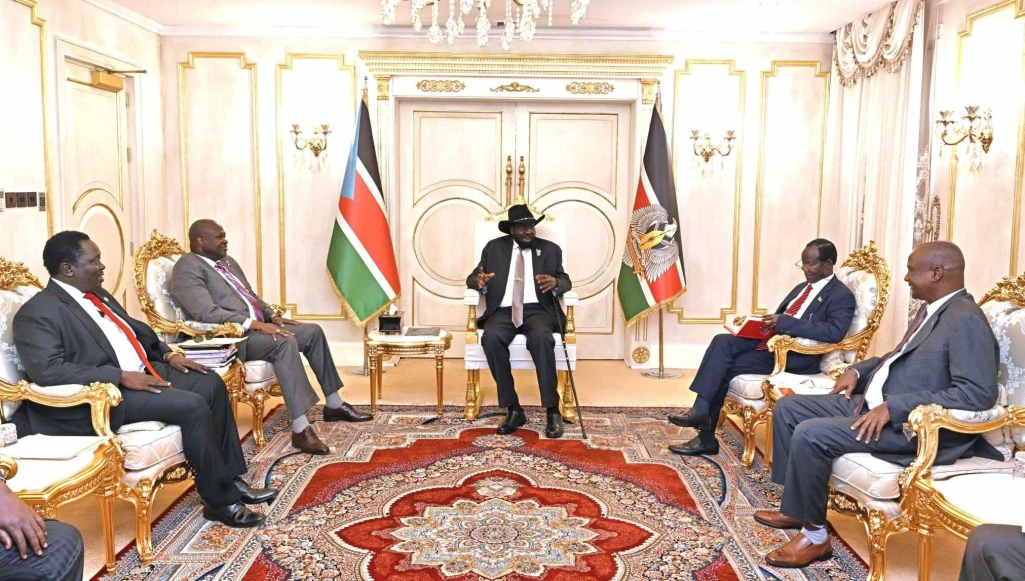
The presidency, which comprises the president and five vice presidents, has been told to stop postponing critical meetings on political transition.
Edmund Yakani, Executive Director of the Community
Empowerment for Progress Organization (CEPO), expressed concern over the
repeated postponement of presidency meetings, which he said undermines the
country’s fragile political transition and its path from conflict to peace.
According to Yakani, the presidency, as the highest
political leadership body in the country, holds the key to South Sudan’s future
stability. However, he pointed out that its recent inaction has cast doubt on
the commitment of top leaders to guide the country out of its current economic,
security, and social crises.
“Last week, the meeting of the presidency was postponed and
this is a common practice that we have witnessed in the last six years that
always meeting of presidency is regularly postponed, and the meeting of the
presidency is not taken seriously as a platform of a top primary national
political leaders who have all the prerogative and the responsibility to make
decision for the success of the transitional process,” Yakani said.
Yakani emphasized that such delays are "a headache and
a disturbance" for citizens, noting that the repeated postponements are
seen as a lack of political will to move the country from violence to peace.
“We are aware that some of those postponements of the
meeting of the presidency is an influence of those whom we see as spoilers of a
successful political transitional process in the country,” he stated.
It is not clear what the presidency was to meet on last week
but with elections scheduled for December 2026, Yakani warned that the country
cannot afford further delays in the political process. He stressed that
preparations for a peaceful and democratic election should already be underway,
but progress has been slow.
He urged the presidency to make timely decisions that will
create a conducive environment for the elections, warning that the previous
extension of 24 months failed to yield the necessary outcomes.
“At least next week, let the presidency meet and make
critical decision on the political transitional process in the country because
the extended two years sound longer, but our experience in the last six years,
we have seen how two years or 24 months, which was last extended, ended up
without even creating a conducive environment for the conduct of the election,”
Yakani urged.
“This time round, we need the presidency to take commitment
and to demonstrate a will that the expected election for December 2026, they
are working on creating a good enough condition for those elections to take
place as expected in December 2026 in a democratic and peaceful manner.”
Yakani also highlighted the multiple crises currently
afflicting South Sudan, from economic hardship to insecurity and devastating
floods.
He emphasized that these challenges compound the urgency of
the political process, as they directly impact the daily lives of citizens.
“Kindly never postpone meeting of the presidency and kindly
run the meeting of the presidency regularly and kindly make a decision at the
level of the meeting of the presidency for the best interest of the citizens of
this country, which is peace and stability,” he appealed.
The presidential spokesperson was not immediately reachable
for comment on why the presidency meeting was postponed.
As the political transition period continues, pressure is
mounting on South Sudan’s leaders to ensure that the promises of peace and
stability outlined in the R-ARCSS are fulfilled.
For many, including Yakani, the presidency’s ability to meet
and make key decisions in a timely manner will determine whether the country
can truly move forward.
With just over two years until the next election, Yakani's
words serve as a reminder of the stakes for the country and its people.